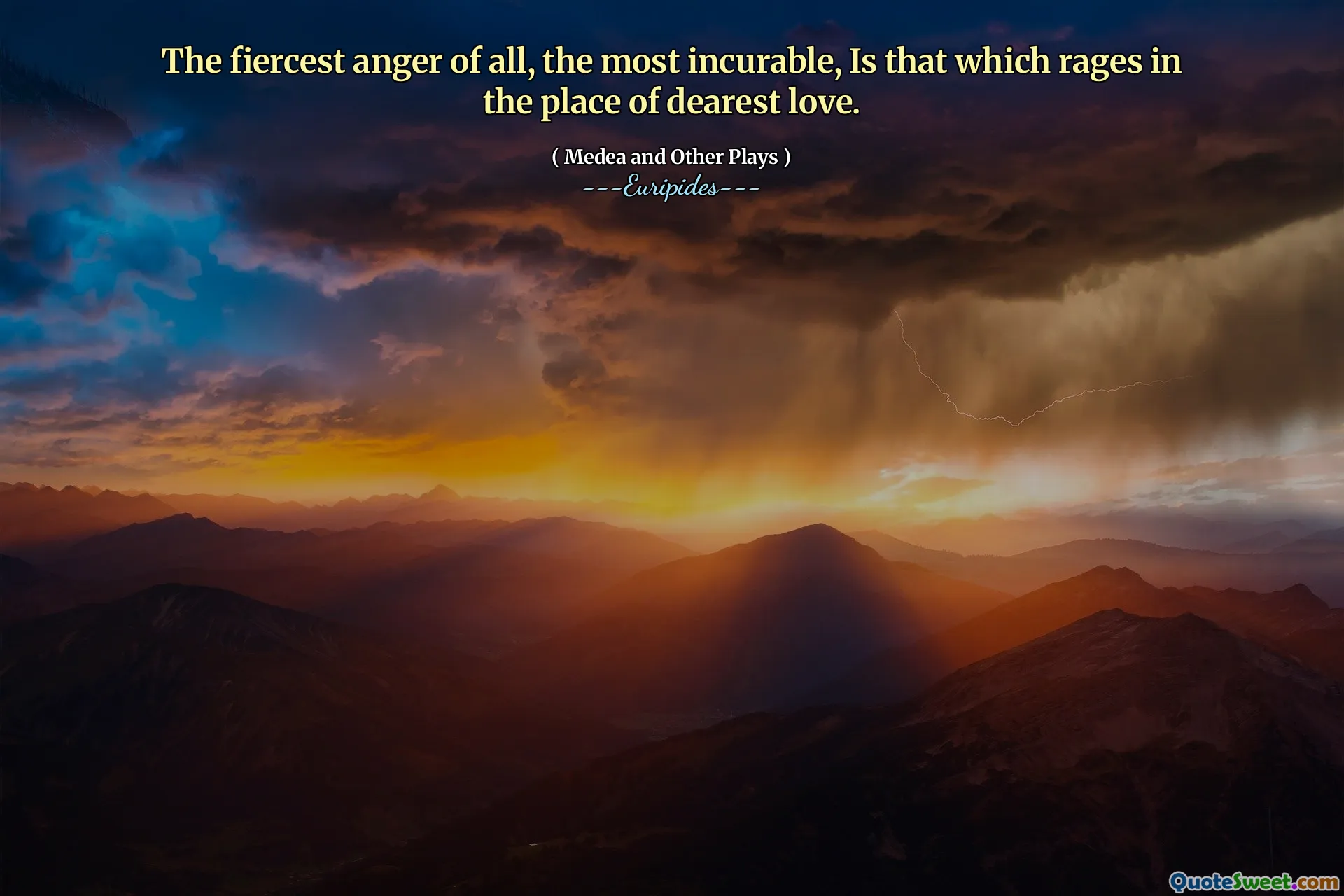
The fiercest anger of all, the most incurable, Is that which rages in the place of dearest love.
This quote poignantly captures the paradox of love's intensity—its capacity to evoke both profound affection and destructive anger. When we speak of love, we often think of tenderness, compassion, and unwavering support. But beneath these delicate layers lies a tumultuous potential for fury when that love is challenged, betrayed, or lost. The phrase 'fiercest anger' suggests that the deepest wounds stem not from outside forces but from the very feelings of love we cherish. This kind of rage emerges from the fear of losing someone dear, feeling misunderstood, or witnessing harm directed toward what we hold most sacred. The anger becomes 'incurable' because it is rooted in the core of human vulnerability—our need for closeness and connection. When love is betrayed or unreciprocated, the emotional response can be as overwhelming as physical pain, tearing at the fabric of our emotional stability. Moreover, this fury can distort perceptions, leading individuals to act impulsively, sometimes with devastating consequences. It highlights the delicate balance between love and anger—that intense emotion can either nurture growth or destroy relationships if not managed consciously. This reflection reminds us that the strongest emotional struggles often stem from the very bonds that give life meaning, exposing the raw edges of human connection. Recognizing this duality may foster greater empathy and patience, understanding that even in moments of anger, underlying love remains a vital force shaping our deepest reactions.







